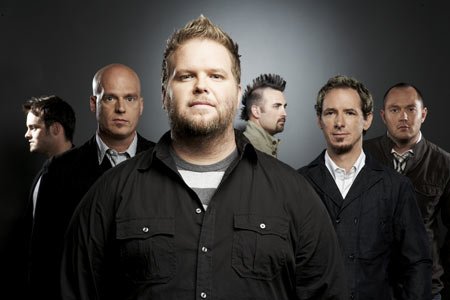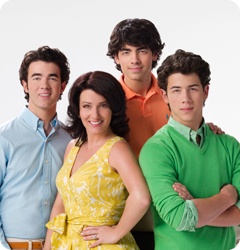 We told our 6-year-old son about the shooting at Sandy Hook the Monday morning after it happened. In a conversation that had me reapplying my mascara, my husband gave him the bare facts: A guy went into an elementary school in Connecticut—far from here—and hurt a lot of kids and some teachers. It’s a very sad, sad thing. But you are safe at your school.
We told our 6-year-old son about the shooting at Sandy Hook the Monday morning after it happened. In a conversation that had me reapplying my mascara, my husband gave him the bare facts: A guy went into an elementary school in Connecticut—far from here—and hurt a lot of kids and some teachers. It’s a very sad, sad thing. But you are safe at your school.
“What happened to the guy who did it?” our son asked quietly.
“He died.”
“How did he die? I mean, how do you know he’s dead?” He looked hard at my husband, daring him to fib.
And so in a twist I didn’t anticipate, my son heard about suicide for the first time. Still, after a moment, he hugged us both tightly, then ran off to talk to his brothers about the Polar Express party they were having at school.
It was a short, straightforward, and impossibly hard conversation to have with a 6-year-old. It didn’t help that as I watched him react, I knew the parts we didn’t share: Those children were the exact same age as him, and they did not survive.
All around the country, parents are having similar conversations. Within hours of the shooting spree, articlesbeganpopping up with suggestions and tips for how to discuss the tragedy with children. But for many people I talked to, the question wasn’t so much “how” to share, but “why.” Why should we expose our children to this evil?
There are no hard and fast rules for this sort of conversation, of course. Each child and each family is different, and parents much discern how best to approach any news topic with young ones. But for Christians, the “why” should be easy: It’s only when we begin to understand the full brokenness of this world, and ourselves, that we can truly understand the fullness of the saving grace of Christ.
I know a lot of parents who avoided the conversation because of their own fears or inability to process it. Yet, parents have to be the ones to introduce children to the reality of evil. If we wait until they learn about it in school, we’ve already lost the information war and, perhaps, our children’s trust. If Mom and Dad only assure their children that everything is okay and always will be, but then the children see and hear the opposite at school, it isn’t long before Mom and Dad are too out of touch to help them face real life as it happens.
Do I think we should plop our little ones down for a Friday night viewing of Schindler’s List? Of course not. I haven’t seen that movie, or read A Thousand Splendid Suns for that matter, but I still know about the Holocaust and the plight of women in Afghanistan. Similarly, we didn’t expose our son to any news coverage of Sandy Hook—not even NPR, the standard station in our van. It’s possible to give our kids information without inundating them with images or stories that are too graphic for them to process.
However, if we aren’t careful to be the ones to disciple them through their early encounters with evil, their peers will inevitably step into that role. And surely no parent thinks that is a good idea.
We also told our oldest son about the tragedy because we want him to grow up with a heart of compassion. How could he do that if we sheltered him from circumstances that call for compassion?
After the Newtown shooting, I returned to my job at a local high school for the last day-and-a-half of the semester. Not once during those hours did I hear the teenagers in my room talk about the tragedy. Of course, teenagers get a bad rap for their selfishness, but I suspect this wasn’t the problem. I think the students didn’t speak of it not because they didn’t care, but because they didn’t know what to say. As the adults in their lives, we could have set a different tone for them. Even simple acts like wearing a ribbon, or—as my husband did in his classroom—putting up a few websites that kids could go to for information on how to help. They still would have talked mostly about exams, and winter formal, and Christmas break. But they might also have begun thinking and talking about people outside of their comfortable bubble.
Our children are tomorrow’s adults. In the case of the students who come through my classroom, the shooter was only a few years older than them. A few short years ago, he sat in a similar room, listening to similar conversations. In the case of my son, the victims were his peers. This tragedy brushes our children’s lives, whether we want it to or not. It won’t be the last one that does either. How will they know how to respond to future tragedies, if we don’t disciple them through the ones of their youth? If we want to raise compassionate, Christ-honoring leaders, the last thing we should do is hide the truth of the world’s brokenness under a bushel of fear.
Monica Selby is a freelance writer and member of the Redbud Writers Guild. She has written for Her.meneutics about teacher strikes, antidepressants and dads. Connect with her at her blog (www.inthewhisper.com), on Facebook, or on Twitter.
MercyMe’s mega-hit, “I Can Only Imagine,” recently hit a major milestone, becoming the first Christian song in history to surpass the 1-million mark in online downloads. Jeff Moseley, president of INO Records, said the event “is a testament to the fact that a song can change the world.” MercyMe frontman Bart Millard, who wrote the song when his father was dying of cancer, added, “Once again it is overwhelming to see the success that a song which is so personal to me has touched so many lives.”
> So, a million downloads makes for a wealthy band, right? Wrong. One 99-cent download from iTunes nets just 9 cents for the artist. So, for MercyMe, a million downloads adds up to $90,000, split by six people in the band equals $15,000 apiece, spread out over about a decade of downloads, equals, oh, about $1500 a year. Downloads simply aren’t a great source of revenue for artists, as this chart clearly shows. The best way to make money online is to sell self-pressed CDs or discs through CD Baby, netting $7.50 or more per album sale.
 It’s Christmas time—and I’m thinking of sweet corn. When it arrives at the farmers’ market in mid-July, my family knows to expect fresh corn chowder. Last summer, we rented an apartment in Montréal, Quebec, and when chowder season dawned, to my delight, I unexpectedly found an immersion blender in one of the kitchen drawers.
It’s Christmas time—and I’m thinking of sweet corn. When it arrives at the farmers’ market in mid-July, my family knows to expect fresh corn chowder. Last summer, we rented an apartment in Montréal, Quebec, and when chowder season dawned, to my delight, I unexpectedly found an immersion blender in one of the kitchen drawers.
I was enamored with the little appliance. Where had it been all my culinary life? I must have gushed on—and on—about the immersion blender, for we weren’t back in Toronto one week when my husband and 9-year-old son came home wearing proud smiles and carrying a medium-sized box.
So it was that I added an immersion blender to my growing inventory of kitchen tools. This is the kind of consumer instinct on which kitchen retailers like Sur La Table and Williams-Sonoma are counting this Christmas. They trust we’ll stock our kitchens with gifted gadgets—and fail to remember that we’re actually cooking far less than we ever have.
In her recent Atlantic essay “The Joy of Not Cooking,” Megan McArdle compares the amount of time our grandmothers and mothers spent in the kitchen to the time we spend in them now. In the 1920s, women traditionally spent 30 hours a week in the kitchen; in the 1950s, 20 hours. Today, our culinary commitment tops out at 5.5 hours a week.
Ironically, when we cooked most, our kitchens were least accommodating. Writes Steven Gdula in his book The Warmest Room in the House, at the turn of the century, “kitchens were as close an approximation to hell on earth as one could find.” By contrast, today’s gourmet kitchen, outfitted with a Sub-Zero refrigerator, Viking Range, and a host of sexy countertop appliances, is meant to offer us a picture of “romance,” says Jack Schwefel, CEO of Sur La Table.
But exactly what are we romanticizing with our Le Creuset cast iron cookware, Breville toaster ovens, and Shun knives? And if we’re not actually using them, what vision of the good life are we trying to buy? Or, might it be most fair to conclude that only the wealthy, who can afford these culinary accoutrements and the luxury of cooking as leisure, are guilty of idealizing domesticity?
Before we pass the buck up the ladder, let’s consider the explosive growth of Pinterest, which broke through the 10-million unique-visitor mark faster than any other website. From the sheer volume of pinners and pin boards, we might conclude there’s been a resurgence of interest in the domestic arts—regardless of demography. But could it be, as McArdle points out, that the majority of us love the idea of cooking and baking and decorating more than the practice?
This month will find many of us busy baking and roasting and ricing. (No potato ricer? Add that to your wish list). But I don’t know if it’s romance that we’ll be finding. Sure, were we the spiritual equals of Brother Lawrence, we’d be meeting God in all the flour and praying as we peeled. But like Rachel Held Evans admits in The Year of Biblical Womanhood, a lot of women hate Christmas.
Hate may be too strong a word. But we’re chagrined when the kitchen work has us on the periphery of the main event, a malaise that bids us to recover the reasons for all the domestic fuss. In one of my and Rachel Held Evans’s most recent essays, we noted that kitchen work can have spiritual benefits. But the blessings are broader that that.
Our efforts matter for our families. If I didn’t prepare the traditional puffed apple pancake for Christmas breakfast, I’d have holiday mutiny on my hands. “But it’s Christmas!” And what is embodied in all that mouth-watering expectation is a sense of tradition. Traditions have a way of rooting us in the particularities of our time and place; they birth in us a sense of belonging. Barbara Kingsolver muses on these affective qualities of family food traditions in her book Animal, Vegetable, Miracle. “I don’t know what rituals my kids will carry into adulthood… I do know that flavors work their own ways under the skin, into a heart of longing.”
But it’s not only our families who benefit from the flavors and fellowship of our tables. Christmas can provide a chance for us to consider others we can include in that sphere of warmth and safety and belonging. Even Sandra Tsing Loh, a self-proclaimed “need-no-one” kind of 21st-century DPM (divorced professional mother), finds herself pining in her essay “The Weaker Sex” for the lost world of “deep domestic comforts.” In exchange for our economic independence, she concedes, we’ve gained unfortunate entry into a world where, “No one is taking care of us! No one!” It’s exactly that lonely space that a table can occupy—especially one tended with domestic love.
I know the view from the kitchen can be an alienating one. The real pile of pots and pans inspires far less than Pinterest images. Even our shiny appliances don’t make the work effortless, even easy. In the midst of what can be simmering resentment at all the work I do! I remember some of the purposes behind the kitchen sweat. I’m not just physically feeding bodies. I’m nourishing something more lasting: the beauty of belonging and the wonder of being loved.
Most of all, when I resist the lure of romanticized domesticity (and the resultant waste of time and money) and commit instead to the reality of the table—and its dishes and disasters—I am making Jesus recognizable; our skin-and-bones God was not a romantic vision.
At the Incarnation, He became flesh.
> While the Dove Awards were handed out recently, Canadian artist Matt Brouwer picked up a Juno Award (Canada’s version of the Grammys) for Contemporary Christian/Gospel Album of the Year for Where’s Our Revolution.
> Legendary singer/songwriter Bruce Cockburn, he of 30 albums and multiple awards, is going to let fans a little deeper inside his head – he’s writing a memoir. to be published by Harper Collins Canada in 2012. Cockburn said the idea of writing a memoir had “popped up now and then,” and that it had “always seemed too soon,” but that the project finally seems timely.

We already know, based on last week's top 10 list, what Her.meneutics articles got the most pageviews. Now we find out which posts stood out among our own writers.
Bowing Down to Your Birthing Ball? Dismantling the Idol of the Perfect Birth, by Gloria Furman, guest writer (July 30)
Sharon Hodde Miller: "This year I became pregnant and was introduced to the crazy culture of American motherhood. The learning curve is steep, the opinions dogmatic. As I prepared to give birth and become a mother, I often found myself tempted to exert control over every detail I could, which only produced greater anxiety in me. Fortunately, Furman's piece corrected my perspective and re-centered it on God."
Bullied News Anchors and Our Fear of Fat, by Lisa Ann Cockrel (October 8)
Rachel Marie Stone: "Even Christian books on health and diet miss the important fact that, as Cockrel writes, 'Health is an equation, full of variables, many of which we can't see or don't understand.' Her post reminds us that the fear of fat is often an irrational one that impedes us in loving and accepting our neighbors—and sometimes ourselves."
Love Your Neighbor. Get Your Vaccines, by Rachel Marie Stone (August 20)
Courtney Reissig: "I have long wondered how to think clearly about these issues but have lacked a clear understanding of how this all relates to our responsibility as Christians. As an experienced mom, Rachel brings up important points to consider and gives this soon-to-be mom a helpful framework for thinking through the vaccine issue."
Sooo Grateful for My Awesome Hubbie and Life! by Lesley Sebek Miller, guest writer (October 18)
Alicia Cohn: "There were so many good posts this year, it's hard to pick a favorite, but this one by Miller is one I still think about often. It's easy to use social media to glorify the good and gloss over the difficult, and I appreciated the reminder to avoid creating a digital image of our 'awesome' life that fails to glorify God or encourage others. I also like that the post included a check-list of our 'responsibilities as Christian online content creators.' "
Gaining the Whole World Wide Web without Losing Our Souls, by Amy Simpson (September 14)
Halee Gray Scott: "Whether it's an iPhone, iPad, or laptop, we're connected everywhere, to everyone, all the time. It's an easy and convenient way to work and socialize, but it's also easy to forget what real relationships are. Amy's article is a good conversation starter about the ramifications of the Internet for our relationships and spiritual life."
The Christian Case for the American Dream, by Halee Gray Scott (November 1)
Karen Swallow Prior: "The essence of the American dream is the freedom that can allow each person's God-given gifts and talents to flourish. Yet fewer and fewer today believe in the dream—or at least in possibility of attaining it. Scott's reminder that the American Dream is not entirely or even mainly about material success could not be more timely as our nation faces an economic crisis that may well tempt us to sell our freedom for a mess of pottage."
The Second Rage of Jerry Sandusky's Victim #1, by Mary DeMuth, guest writer (October 29)
Michelle Van Loon: "DeMuth, an abuse survivor, reminds us in this poignant post that if someone tells us something about abuse they've experienced (or are currently experiencing), we must respond to their courage with compassion and action."
Why Marilynne Robinson, Narrative Calvinist, Doesn't Fear Fox News, by Rachel Marie Stone (May 1)
Marlena Graves: This reflection on Robinson's talk at the 2011 Festival of Faith and Writing is beautifully written. I can chew on this line for a long time: 'Fear … shuts down creativity and the capacity for imaginative, loving identification with others, who, in fear, become perceived threats.' "
The Departure of Ann Curry and the Death of a Dream, by Jenni Catron, guest writer
Katelyn Beaty: "Each of us has a dream. And each of us faces the reality that it may die. TV journalist Ann Curry watched her dream die upon her departure from The Today Show. In this post, Catron reminds us that our identity ultimately rests in our Creator and Redeemer, not in our accomplishments. And yet, God often restores our dreams to us for his own purposes. I valued Catron's biblical wisdom immensely."








